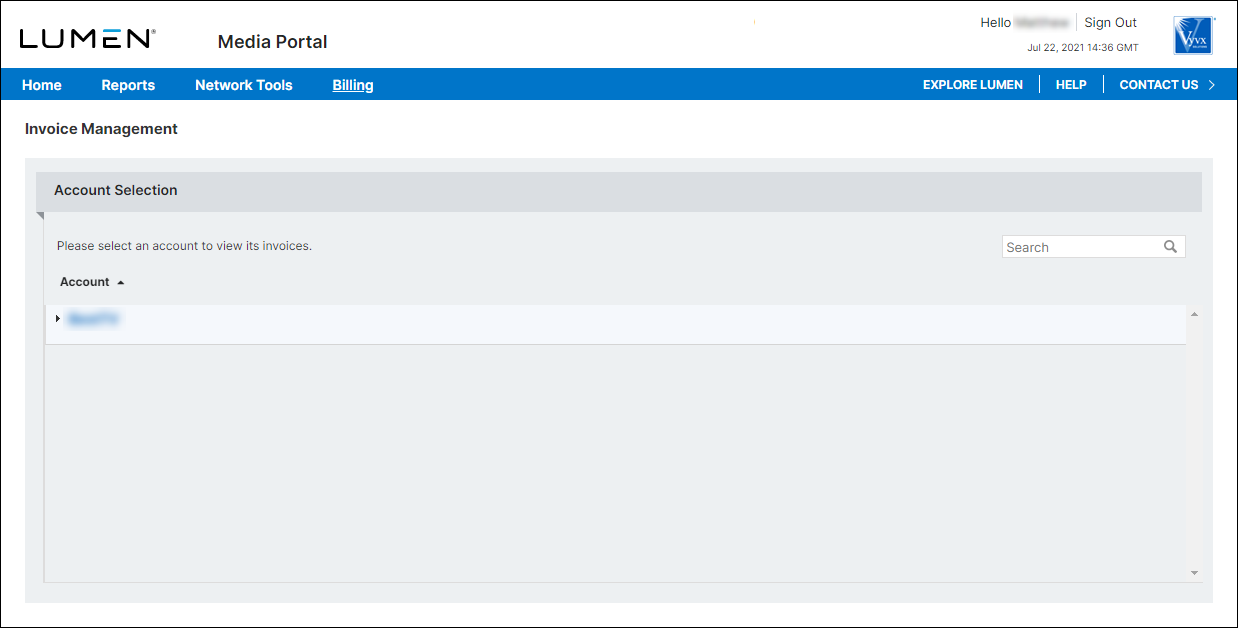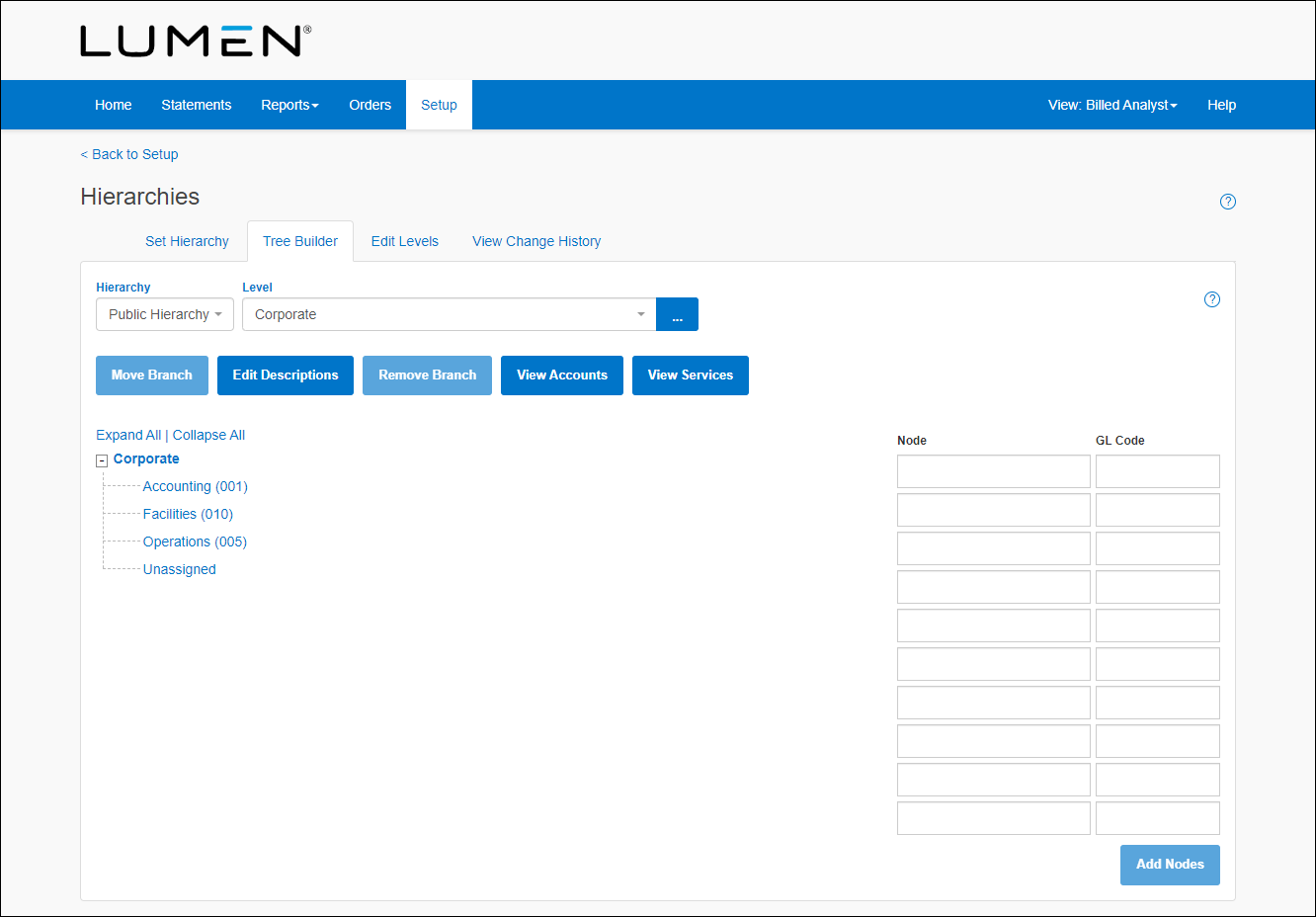Adding a node to a hierarchy in Bill Analyst
After you create a hierarchy, you add nodes to it using the Tree Builder tool.
The nodes represent your organization’s divisions, departments or other cost centers; they’re the children of the topmost node. Give each node a descriptive name and corresponding general ledger (GL) code (you can edit a node description later if you need to).
You’ll need to assign accounts and services to the nodes; you can also split services between nodes to assign costs across multiple groups that share a service. Move nodes or remove branches (nodes) when your organizational structure or reporting needs change.
Make the hierarchy you want to edit the active hierarchy when you open Bill Analyst.
You can use hierarchies to structure your data to track your telecom use or spend across different groups and functions of your organization for more informed reporting and analysis:
- Review monthly telecom spend by business unit, division, department, group, or other segment of your organization; assign costs among groups that share telecom services.
- Use a hierarchy and its levels like data filters for your reports (in addition to standard and custom filters).
- Create multiple hierarchies to test and compare different reporting scenarios.
A hierarchy mirrors the structure of your organization—business units, regional offices, retail outlets, cooperatives, departments, and other reporting groups. The nodes and sub-nodes of a hierarchy form a tree structure, connected in parent-child relationships, representing your organization’s various groups. Split services between nodes to assign costs across multiple groups that share a service.
You can set a hierarchy you create as private (seen only by the person who created the hierarchy) or public (seen by all users in your organization).
Note: Some aspects of working with hierarchies are permission based. For example, you can only edit a node description, move a node to a different level, or remove a node if you are the owner or administrator.
To add a node to a hierarchy:
- Sign in to Media portal. (Get help resetting your password)
- From the main menu, select Billing > Invoice Management.

- From the list of accounts, click the blue hyperlink for the account you want to work with.

- Click the Setup tab.
- In the Hierarchies box, click Tree Builder.

- In the Node field, type the top level department.
- In the GL code field, type the GL code for that department or division.
- Click Add Nodes.
- Continue building your organizational tree by selecting a parent node for additional departments.
Explore Media portal




